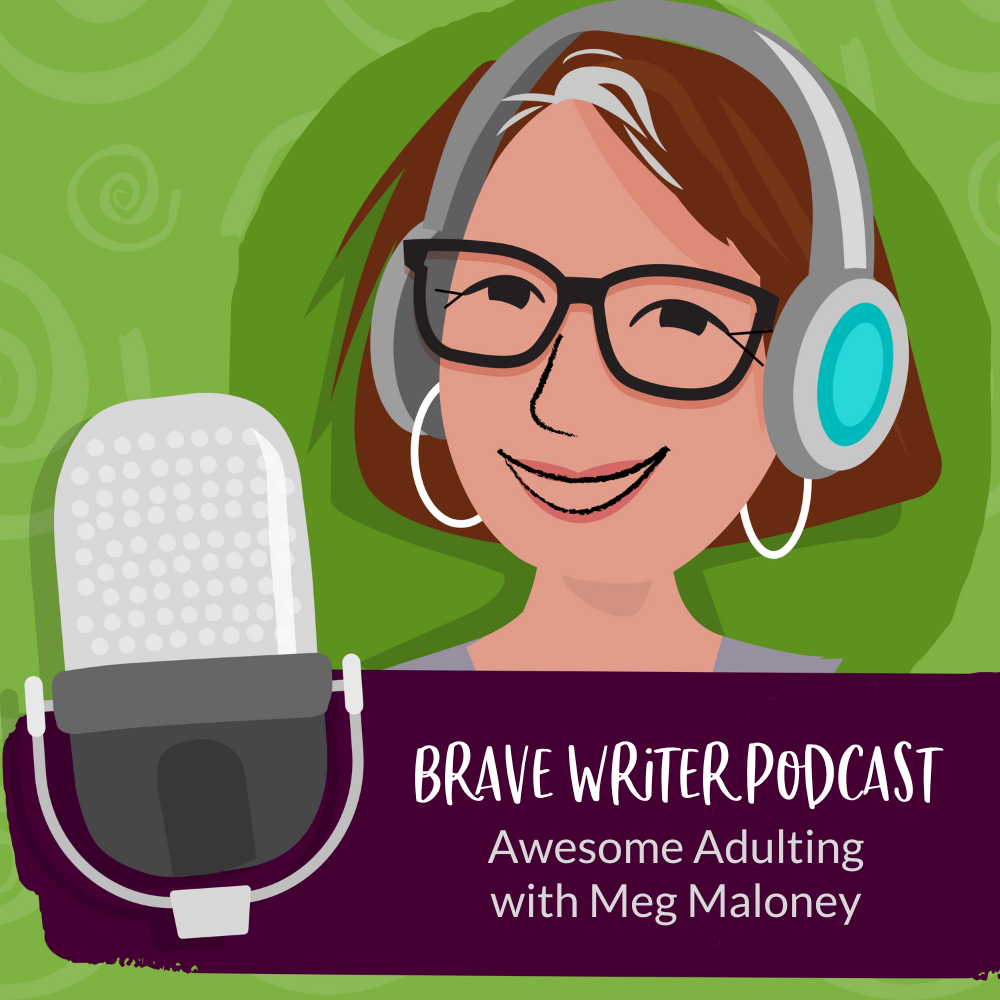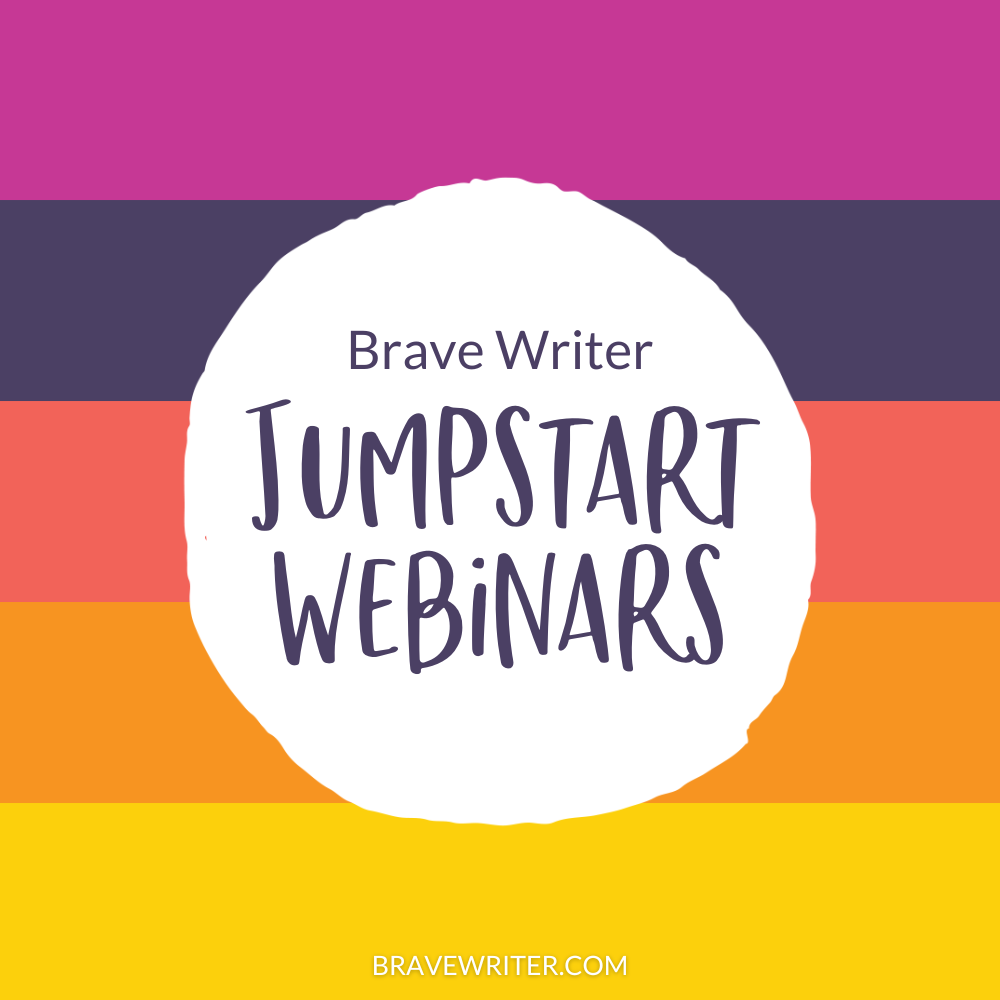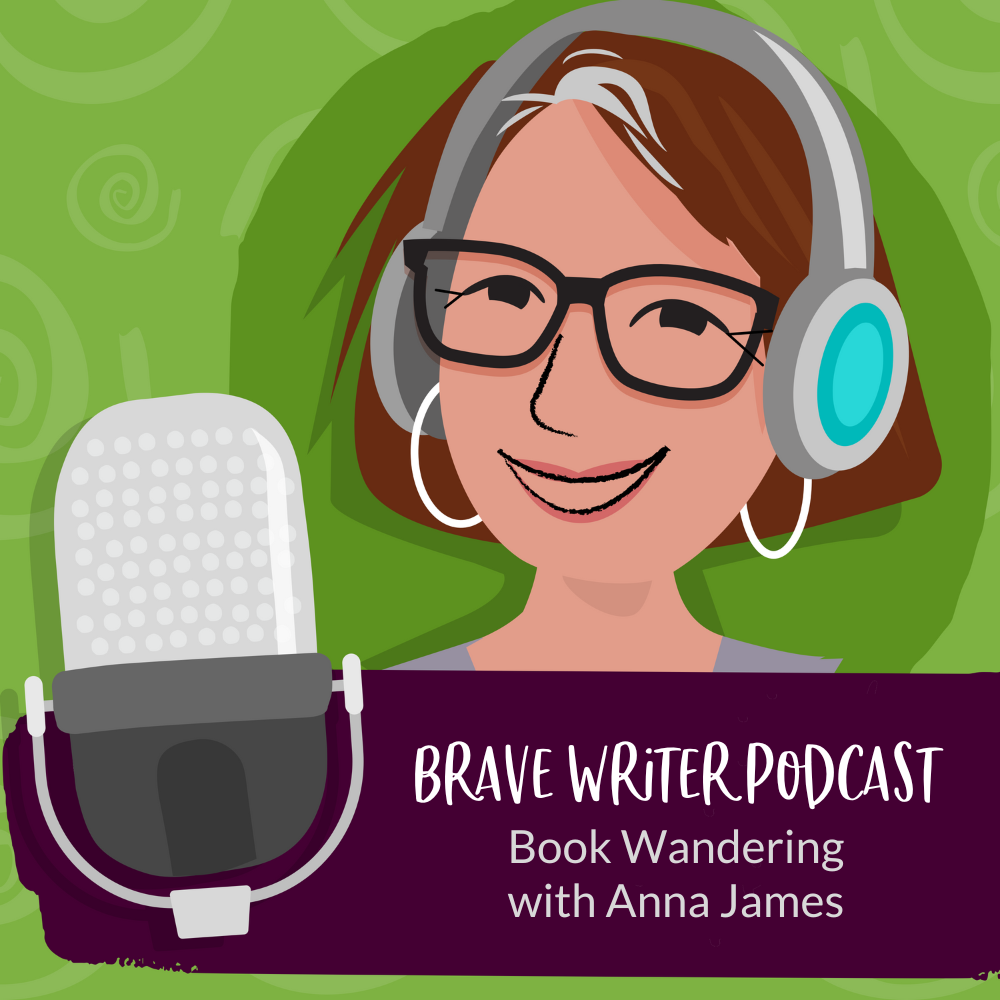
The vegetables (and a few fruits!) are arguing over which combination of them makes the best soup. Write their conversation.
New to freewriting? Check out our online guide.

The vegetables (and a few fruits!) are arguing over which combination of them makes the best soup. Write their conversation.
New to freewriting? Check out our online guide.
Tags: Writing prompts
Posted in Friday Freewrite | Comments Off on Friday Freewrite: The Best Soup

Meet my college friend in this Brave Writer podcast episode!
Meg Maloney is the author of an intriguing memoir, “Slow Your Roll,” where she chronicles her transformative journey across Spain on the Camino de Santiago, a renowned network of pilgrimages culminating at the shrine of apostle St. James the Great in the Cathedral of Santiago de Compostola. With its spiritual aura, this trail has attracted millions over the years, becoming a beloved route for spiritual seekers, hikers, and tourists alike.
Beyond her role as an author, Meg is a seasoned marriage and family therapist, a loving mother of three grown-up children, and a devoted wife of more than 30 years.
In our conversations, we shared a recurring theme—the importance of nurturing one’s individual identity and aspirations beyond motherhood, a concept I’ve coined as “awesome adulting.” You’ll hear:
And for writers: she gives us a treat—she shares about her journey to writing and self-publishing her first book!
I loved her memoir and I hope you will too!
The life-affirming benefits of pilgrimage
Indeed, embarking on this pilgrimage allowed Meg to temporarily shed her familial roles and reconnect with her younger, more individualistic self. This is a woman who delights in connecting with people and their stories – a penchant that was fed abundantly on the Camino. Meg’s affinity with Spain began during her junior year of college when she studied abroad. That experience was a stepping stone for her pilgrimage years later.
Everyday on the Camino was a unique experience – covering approximately 15 miles on foot, sleeping in a different locale each night. The physical and mental rigor of this journey is testament to the resilience of the human spirit, irrespective of age or fitness level. It’s a challenge, but one that Meg feels keeps life interesting, setting a great example for the younger generation.
Yet, after the Camino, adapting back to the fast-paced, constantly connected, societal pressure-filled life was challenging for Meg. The slower pace and mutual care of the Camino felt more real, more human. Today, she spends half the year in a slower-paced Southern Californian community, cherishing the connections she made during her pilgrimage, a vital part of her transformative journey.
Writing as an integral part of the journey
Throughout her journey, Meg found solace and deeper connection through writing. As she trekked across Spain, she kept a daily blog. The act of penning down her feelings and observations was therapeutic and meditative, connecting her more profoundly with her experiences. Her conscious commitment to reflect on her day and her encounters elevated her awareness, anchoring her deeper into each moment.
Even though Meg hasn’t been able to maintain the same level of discipline in her writing since returning home, she values its importance. Aspiring writers often hear the advice to simply sit down every day and let creativity flow. Meg embodies this, proving that the chair, the blank page, and the open mind are often all you need.
Interestingly, Meg hadn’t initially planned to pen down her Camino experience in a book. It was a friend and fellow Camino walker, Bob Mackler, who suggested the idea after following her blog. Despite some publishing challenges, Meg successfully launched “Slow Your Roll” as a paperback through Amazon. A detail that warms my heart is that her family contributed to the book’s design.
Her book title, inspired by the song “Slow Your Roll” by Brothers Osborne, encapsulates the essence of her journey and the central theme of slowing down, being present, and embracing the moment. Meg highlights the importance of disconnecting from technology, immersing oneself in nature, and allowing the creative process to flourish.
The memoir is a detailed, personal account of the Camino journey, a testament to simplicity and introspection. It strikes a chord in those in their later stages of life, where self-reflection becomes paramount, and where the hustle and bustle of daily life often overshadows inner peace and understanding.
Inspiring your own personal journey
After our reminiscences and shared wisdom, Meg left me with a profound hope. She hoped that her story might inspire others to consider a journey like the Camino. Such an experience is more than just a physical trek; it’s a mental and emotional exploration, one that alters the course of life, providing insights, clarity, and an understanding of oneself that is hard to come by in our routine lives.
We’re not just mothers, fathers, husbands, wives, or children. We’re individuals with unique identities and aspirations. I’ve learned this from my conversations with Meg, and her memoir is a testament to this belief. After all, we are more than the roles we play, the tasks we perform, and the responsibilities we bear. Like Meg, we can all learn to slow our roll, take a deep breath, and reconnect with our individual selves amidst the daily grind.
Our experiences shape us. They change us in ways we cannot foresee. They make us self-aware, compelling us to look within, to understand our feelings, needs, and thoughts, and to take care of ourselves. Like a child needing to pause and refuel with a cup of Cheez-its, or like an adult needing a moment to step away from a stressful situation, we all have moments when we need to tend to our emotional health.
So, I encourage you all to consider embarking on your journey. It doesn’t have to be a physical one like Meg’s. It could be a new hobby, a change in routine, or an act of self-reflection. Regardless, take that leap, dive into the unknown, and I guarantee, you’ll come out stronger, happier, and more self-aware on the other side. That’s the magic of embracing the journey, the magic of awesome adulting!
Posted in Podcasts | Comments Off on Podcast: Awesome Adulting with Meg Maloney on the Camino de Santiago

Here are four FREE webinars that help you understand both the philosophy and practice of Brave Writer’s literature + writing mechanics programs for ages 5-18.
Each webinar is jam-packed with information to help you be successful this coming school year, in addition to helping you understand Brave Writer materials.
Replays are below.
The best books, the best words—allow your children to be bathed in high quality writing while they learn the mechanics and craft of writing.
Our programs offer a gentle, seamless way to build strong writing skills! Julie will show you how.
To grow a writing voice, it helps to listen to and learn from a wide variety of writing voices. Not only that, literary analysis can be the tool that unlocks buried treasure in a book and we intend to help you dig!
Sale Q&A plus big news: Start Your Homeschool with Julie!
Join Julie to answer your last questions before the sale ends. Also, Julie is announcing her brand new program for new homeschoolers, or those who want to change how they homeschool. Learn all the details by registering now. Space is limited.
Posted in Language Arts | Comments Off on Replays: Jumpstart Webinars

Pick a book character who’s a teen or an adult. Now describe what they might have been like as a toddler.
New to freewriting? Check out our online guide.
Tags: Writing prompts
Posted in Friday Freewrite | Comments Off on Friday Freewrite: As a Toddler

In the realm of children’s literature, certain authors create captivating worlds that inspire young readers to explore, imagine, and grow. One such author is Anna James, the British writer and journalist based in North London, known for her middle-grade novels series, “Pages and Co.”
Today on the Brave Writer podcast, we’re discussing:
Also, don’t forget to hop over to the Brave Writer store to pick up the Arrow that goes with her book “Pages & Co.: The Book Wanderers” (the Arrow is our literature handbook that teaches grammar and literature to your 11-12 year olds!).
The Journey into Fiction
Anna’s journey into fiction was as magical as the worlds she weaves. Her love for books and reading stemmed from her childhood adventures, often featuring her and her sister as characters in Enid Blyton’s “Famous Five” adventures. This idea of being part of a story was the seed that blossomed into the concept of “book wandering” in her “Pages & Co.” series.
Despite her passion for literature, Anna chose to study history at university to preserve her pure love for reading. Initially, she aspired to be a librarian, even planning to do a master’s in archives. However, fate led her to switch her path at the last moment.
The Magic of Book Wandering
The “Pages & Co.” series, expected to have its sixth installment later in the year in the UK and next year in the US, introduces readers to Tilly, a young girl living in a bookshop who discovers her ability to travel inside books and stories. This concept of “book wandering” is a testament to Anna’s belief in the magic of imagination, especially for young people imagining their own lives and those of others.
The series, which was envisioned as a standalone book, focused on characters entering the pages of books. The story eventually expanded into six books, introducing new characters and story arcs along the way.
An Instinctive Writing Process
Anna describes herself as a “pantser,” writing by the seat of her pants without an outline. Her first drafts flow from start to finish without looking back, and she trusts her instincts as a writer, thanks to her exposure to a multitude of stories. Despite significant plot shifts and character changes, her first drafts always end up around the same word count due to her innate sense of pacing.
Her writing process also reflects her love for immersive theater, where the audience becomes part of the story. Anna started writing about it after her book series began coming out, seeing a connection between immersive theater and book wandering.
The Enchanting Setting
The setting of the “Pages & Co.” series was inspired by Anna’s experiences at Waterstones, a British bookstore in Newcastle, where she discovered many of her favorite books as a child. The visual impact of seeing many books together symbolizes the richness of human thought and ideas, a sentiment lost in the digital age.
The Journey of Identity
Anna emphasizes the importance of young people finding their identity and standing up for their beliefs. Through her character, Tilly, she explores the process of self-discovery and self-definition, even when it means going against the expectations of loved ones. Anna believes in the importance of young people asserting themselves, learning from their mistakes, and navigating their own paths.
Upcoming Adventures
Anna is currently working on a new series called the “Weather-Wide Chronicles,” set to be published in the UK in the upcoming autumn. She is also planning an “Alice in Wonderland” re-imagining, following Alice’s granddaughter, Alyce.
Anna James’ work is a testament to the power of imagination and the beauty of discovering oneself through the pages of a book. Her series not only provides young readers with a captivating journey but also encourages them to chart their own paths, just like Tilly, setting their own compass in the world.
Posted in Podcasts | Comments Off on Podcast: Book Wandering with Anna James

I’m a homeschooling alum -17 years, five kids. Now I run Brave Writer, the online writing and language arts program for families. More >>
IMPORTANT: Please read our Privacy Policy.















